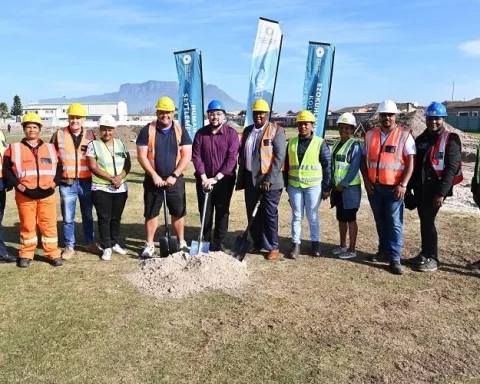South Africa’s Minister in The Presidency, Khumbudzo Ntshavheni, held a critical cabinet meeting at Tshedimosetso House in Pretoria, which was broadcast live on social media for all citizens to follow. The meeting covered a range of topics, including citizen-centric services, support for businesses, and provisions for foreign nationals. The government’s dedication to transparency and inclusivity was evident, reflecting their commitment to building an inclusive and forward-thinking nation.
South African government’s commitment to service delivery and transparency was showcased during a live broadcast of a critical cabinet meeting. The Minister covered topics including citizen-centric services, support for businesses, and provisions for foreign nationals. The meeting reflected the government’s broad responsibilities and dedication to building an inclusive and forward-thinking nation.
A Historical Day in Pretoria
On the 16th of November 2023, the echoes of South Africa’s political past reverberated through Tshedimosetso House in Pretoria. It was no ordinary Thursday; instead, it was the day Khumbudzo Ntshavheni, the Minister in The Presidency, held a critical cabinet meeting.
Known for her sagacious leadership and strategic foresight, the Minister briefed the media about the cabinet meeting’s results. An indispensable part of South African governance, these meetings are essential for making pivotal decisions that shape the country’s future.
The briefing took place in the Ronnie Mamoepa Press Room, named after a late government spokesperson admired for his dedication to public service and transparency. His memory added weight to the importance of the day’s events.
Embracing Digital Democracy
In a commitment to promote transparency and accessibility, the government extended the invitation to the briefing beyond the media. The gathering was broadcast live on various digital platforms, including Facebook, Twitter, and YouTube. Hence, any ordinary South African citizen with an internet connection could tune in, keeping abreast with the nation’s affairs from the comfort of Tshedimosetso House.
The Minister’s briefing spanned a wide array of topics, reflecting the multifaceted nature of governing a diverse country like South Africa. From government vacancies to the complexities of the national system, each item on Ntshavheni’s agenda echoed the arduous task of steering a nation. The government’s steadfast dedication to their National Orders, presidential awards for distinguished service, was reinforced during the briefing.
A Commitment to Service and Transparency
The Minister further delved into the vast array of services the government provides its citizens, organizations, and foreign nationals. She touched on every aspect of life, from birth and education, health and social benefits, to retirement and end-of-life affairs. The government’s citizen-centric services, such as legal assistance, retirement benefits, old age provisions, were also highlighted.
The government’s commitment to supporting businesses was evident in the discussion about services for organizations. Ntshavheni spotlighted business registration, changes in registration, incentives, and deregistration provisions. Additionally, the government’s role in managing tax, intellectual property rights, and issuing permits and licenses was discussed.
Foreign nationals were not overlooked in the conversation. The briefing offered insights into government provisions for temporary and permanent residence, as well as driving regulations.
A Testament to Democracy in Action
The briefing was not just a summary of results; it embodied the South African government’s commitment to service delivery and transparency. The wide-ranging topics reflected the government’s broad responsibilities, dedication to its citizens, and determination to build an inclusive and forward-thinking nation.
Government’s role extends beyond the decisions made in government buildings to influence the lives of ordinary citizens. This briefing underscored that connection, reminding every South African of their ties to decisions made in places like Tshedimosetso House.
As Ntshavheni’s words resonated through the Ronnie Mamoepa Press Room, they painted a picture of a nation in progress. The outcomes of the meeting, streamed live for all to see, were evidence of South Africa’s commitment to transparency, inclusivity, and citizen-centric governance.
In a world where accurate information is increasingly vital, the South African government’s dedication to keeping its citizens informed is not only praiseworthy but also essential. This briefing extended beyond an announcement of decisions; it was an open invitation for every South African to be a part of their country’s narrative.
The South African government’s commitment to progress and public service was evident in each topic on the agenda, each decision made, and each promise to the South African people. Through Ntshavheni’s words, the tale of a nation striving for a better future unfolded.
1. What was the purpose of the critical cabinet meeting held by Khumbudzo Ntshavheni?
The critical cabinet meeting held by Khumbudzo Ntshavheni addressed a range of topics, including citizen-centric services, support for businesses, and provisions for foreign nationals.
2. Where was the briefing held and who was invited to attend?
The briefing was held at Tshedimosetso House in Pretoria and was open to the media as well as citizens who could tune in through various digital platforms.
3. What topics were covered in the briefing?
The Minister covered a wide range of topics ranging from government vacancies to citizen-centric services, support for businesses, and provisions for foreign nationals.
4. What is the South African government’s commitment to transparency and inclusivity?
The South African government is committed to transparency and inclusivity, as evidenced by the live broadcast of the cabinet meeting. The government aims to build an inclusive and forward-thinking nation by ensuring that its citizens are informed and involved in decision-making processes.
5. How does the government provide services to its citizens, organizations, and foreign nationals?
The government provides a wide range of services to its citizens, organizations, and foreign nationals, including legal assistance, retirement benefits, old age provisions, business registration, tax management, intellectual property rights, and issuing permits and licenses, among others.
6. Why was the briefing considered a testament to democracy in action?
The briefing was considered a testament to democracy in action because it reflected the South African government’s commitment to service delivery, transparency, and inclusivity. The government’s dedication to keeping its citizens informed is essential in promoting accurate information, building an inclusive nation, and encouraging citizens to be part of their country’s narrative.








